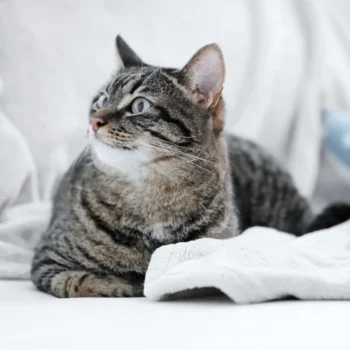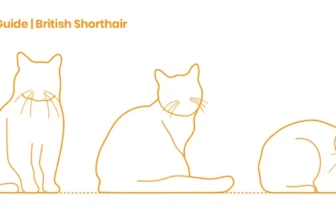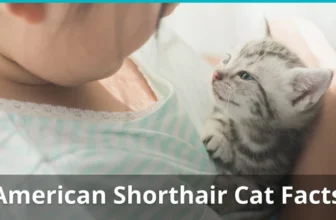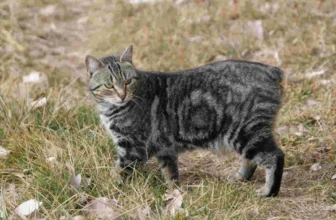As a cat owner, you want to ensure that your American Shorthair cat receives the best possible care. One of the most important aspects of caring for your furry friend is taking them for regular check-ups at the vet. But why are these check-ups so important? What happens during a check-up? And how often should your cat be visiting the vet? In this article, we’ll explore the importance of regular vet check-ups for American Shorthair cats. We’ll look at what to expect during these visits, the benefits of regular check-ups, when to take your cat to the vet, how to prepare for your cat’s visit, and how to choose the right vet for your feline companion. So, let’s dive in and find out why regular vet check-ups are so crucial for the health and wellbeing of your American Shorthair cat.
What Happens at a Vet Check-up?
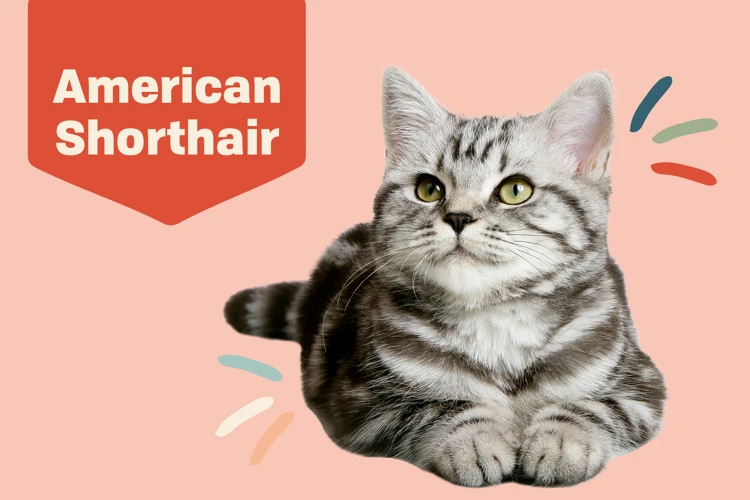
When it comes to taking care of your American Shorthair cat, regular visits to the vet are an important part of maintaining their health and well-being. During a vet check-up, your cat will undergo a complete physical examination, as well as other tests and procedures to ensure that they are in good health. This is an essential process for keeping your cat healthy and catching any health issues early on. Let’s take a closer look at what happens during a vet check-up and why it’s so important for your cat’s health. To learn more about specific health issues that may affect American Shorthair cats, check out our other articles, such as Health Issues for American Shorthair Cats or Genetic Health Issues for American Shorthair Cats.
Physical Examination
During a physical examination at a vet check-up, several things are assessed to ensure your American Shorthair cat’s health. The vet will start with a visual examination, looking at your cat’s fur, eyes, ears, nose, and mouth. The vet will check for any signs of discharge, swelling, or inflammation. This is important because it can give an indication of underlying health issues, such as infections or allergies.
The vet will also feel your cat’s body for any lumps or bumps and will check the skin for any signs of irritation, such as redness or flakiness. Weight will be recorded to ensure that your cat is maintaining a healthy weight and not becoming overweight, which can lead to numerous health issues.
During the physical examination, the vet will also listen to your cat’s heart and lungs for any abnormal sounds or rhythms. This can help detect early signs of heart disease or respiratory issues. Blood pressure may also be checked, particularly in senior cats or cats with pre-existing medical conditions.
It’s important to remember that physical examinations are not just about treating illnesses, but also about preventative care. By detecting any problems early, vets can help to prevent serious health issues in the future. For instance, preventative measures can be taken to prevent dental issues, arthritis, and urinary tract issues.
Regular physical examinations also give you an opportunity to discuss any concerns you have with your vet, such as allergies, dietary needs, or diabetes care. Vets can provide valuable advice on how to keep your American Shorthair cat healthy.
By taking your cat for regular check-ups, you may be able to detect any behavioral changes or unusual symptoms early on. This can help to prevent serious health issues that may develop over time. For example, cats suffering from arthritis may show signs of limping or avoid jumping. Catching these symptoms early can help prevent further damage.
Regular physical examinations provide numerous benefits for your American Shorthair cat. This vital checkup helps to ensure that your feline is in good health and can detect any health issues before they escalate into more serious problems. By discussing any concerns with your vet, preventive measures can be taken to ensure that your cat lives a happy and healthy life.
Dental Examination
During a dental examination at a vet check-up, the vet will examine your American Shorthair cat’s teeth and gums for any signs of dental issues. Dental problems in cats can lead to serious health issues if left untreated, including infections, pain, and difficulty eating. It’s important to take your cat to the vet regularly for dental examinations to catch any issues early on.
The dental examination may include:
- Checking for signs of periodontal disease, which is a common dental condition in cats. This can include redness, inflammation, and bleeding gums.
- Examining for broken, chipped, or loose teeth that may cause discomfort or difficulty eating.
- Looking for signs of gingivitis, an early stage of periodontal disease, which can be reversible with proper treatment.
- Cleaning your cat’s teeth if necessary, which may require sedation.
- Providing recommendations for at-home dental care, such as brushing your cat’s teeth and a special diet.
Dental care is an important part of your cat’s overall health. Preventing dental issues can help your American Shorthair cat avoid pain and other health complications. To learn more about how to prevent dental issues in cats, check out our article on preventing dental issues in cats.
Bloodwork and Urinalysis
During a vet check-up, it’s important to have bloodwork and urinalysis done for your American Shorthair cat. These tests can provide important information about your cat’s overall health and check for any underlying conditions that may not be visible during a physical examination.
Bloodwork: Bloodwork includes a complete blood count (CBC) and a blood chemistry panel. The CBC provides information about your cat’s red blood cells, white blood cells, and platelets. A blood chemistry panel includes tests for organ function, electrolyte levels, and blood glucose levels. These tests can help identify health issues such as anemia, infection, liver or kidney dysfunction, and diabetes.
Urinalysis: Urinalysis is used to check the health of your cat’s urinary system. This includes checking for the presence of blood, protein, and bacteria in the urine. Abnormalities in the urine can indicate underlying health issues such as kidney disease, bladder infections, and bladder stones. It’s not uncommon for American Shorthair cats to have urinary tract issues due to their genetics, so it’s important to have these tests done regularly.
By having bloodwork and urinalysis done, your veterinarian can catch potential health issues before they become more serious. Early detection can lead to more effective treatment, which can ultimately higher chances of a full recovery.
Pro Tip: If your cat has special dietary needs or health issues such as arthritis, allergies, diabetes, or urinary tract issues, make sure to discuss them with your vet. They may recommend additional tests to ensure your cat receives the best possible care. For more information on some of these health issues, check out our article on /healthy-american-shorthair-cat/.
Benefits of Regular Vet Check-ups

It’s important to understand the numerous health benefits of taking your American Shorthair for regular check-ups at the vet. Not only can early detection of diseases lead to a better quality of life for your cat, but preventative measures can also be taken to ensure your furry friend lives a long and healthy life. Regular check-ups can also help maintain vaccinations and parasite prevention. In this way, you can stay informed about the dietary needs of your cat and precautions necessary for issues such as arthritis, allergies, diabetes, urinary tract issues, and more in the future.
Early Detection of Health Issues
Early detection of health issues is one of the key benefits of taking your American Shorthair cat to the vet for regular check-ups. During these check-ups, the veterinarian will perform a thorough examination of your cat, which can help catch any underlying health issues before they have a chance to develop into serious problems.
Some common health issues that cats may face include special dietary needs, arthritis, allergies, diabetes, and urinary tract issues. If any of these conditions are left untreated, they can worsen and cause significant health problems. However, if caught early, these conditions can often be managed or even cured with proper treatment.
Regular vet check-ups can also help detect less obvious health issues such as dental problems. Cats can develop a variety of dental issues, such as gum disease or tooth decay, which can cause significant pain and lead to further health complications if left untreated. By having a dental examination during their regular check-up, you can catch these issues early and take action to prevent them from getting worse.
Another benefit of early detection of health issues is that it can be less expensive in the long run to manage or treat these issues when caught early on. Additionally, your cat may experience less discomfort, and their overall quality of life can improve.
Regular vet check-ups can be critical in catching and treating health issues early on. By being proactive about your American Shorthair cat’s health, you can help ensure that they stay healthy and happy for years to come.
Preventing Future Health Problems
Regular vet check-ups for American Shorthair cats can also help prevent future health problems. This is because the vet will be able to detect any potential issues early on and provide preventative measures. For example, obesity is a common health issue in cats that can lead to other problems such as diabetes and arthritis. During a check-up, the vet can provide advice on proper nutrition and exercise to help prevent obesity and other related health issues.
Regular check-ups can also help prevent dental issues in cats. Dental problems can lead to various health problems, including heart and kidney issues. The vet can perform dental examinations during check-ups and recommend preventative measures such as teeth cleanings or a change in diet.
The table below highlights some common health issues in American Shorthair cats and the preventative measures that can be provided during a vet check-up.
| Health Issue | Preventative Measures |
|---|---|
| Obesity | Proper nutrition and exercise advice |
| Dental Issues | Dental examinations and cleanings, diet changes |
| Allergies | Identification of allergens and avoidance tactics |
| Diabetes | Regular bloodwork and monitoring blood sugar levels |
| Urinary Tract Issues | Recommendations for proper hydration and diet changes |
It is important to note that preventative measures can vary based on the individual cat’s needs and health history. Your vet will be able to provide personalized recommendations to keep your American Shorthair cat healthy and prevent future health problems.
If you want to learn more about preventative measures for specific health issues in American Shorthair cats, check out our articles on diabetes care, arthritis, allergies, and urinary tract issues.
Maintaining Vaccinations and Parasite Prevention
Regular vet check-ups for American Shorthair cats are important because they help in maintaining vaccinations and parasite prevention. Vaccinations are essential to keep your furry friend healthy. It is recommended to vaccinate your cat against common illnesses at the early stage of their life and then boost it up at regular intervals. Vaccinations help in building immunity against diseases, and regular check-ups ensure that your cat is up-to-date with their vaccinations.
Parasite prevention is also crucial for maintaining the health of your American Shorthair. Cats are prone to both internal and external parasites that can cause harm to their body. Some of the common parasites that affect cats are fleas, ticks, heartworms, and intestinal worms. These parasites can cause serious health issues and even death in severe cases. It is important to take preventive measures to protect your cat from these parasites.
During a regular vet check-up, the vet will examine your cat for any signs of parasites and recommend preventive measures accordingly. This may include recommending flea and tick medication or prescribing a monthly heartworm preventive. The vet may also prescribe medication to treat any pre-existing parasitic infections.
It is crucial to maintain regular vaccinations and parasite prevention for your American Shorthair because it not only keeps them healthy but also prevents the spread of diseases to other cats and humans. In case you notice any symptoms of infection or illness in your cat, such as vomiting, diarrhea, or lethargy, it is advisable to consult the vet immediately.
Conclusion: Regular vet check-ups help maintain vaccinations and parasite prevention for your American Shorthair cat. These preventive measures are essential to keep your cat healthy and happy while preventing the spread of diseases to other cats and humans. In addition to this, you can also read our article on American Shorthair cat diabetes care to learn more about keeping your feline friend healthy.
When Should You Take Your American Shorthair cat to the Vet?

As a cat owner, it can be difficult to determine when your furry friend needs a trip to the vet. Your American Shorthair cats are known for their robust health, but it’s important to remember that they still need regular check-ups to maintain their well-being. So, when exactly should you take your beloved feline to the vet? Let’s explore the recommended frequency, changes in their behavior or health that may require a vet visit, and the unique considerations for senior cats.
Recommended Frequency
Regular vet check-ups are vital for ensuring the good health and well-being of your American Shorthair cat. But how often should you make an appointment with your vet? It depends on the age and overall health of your feline friend.
As a general guideline, adult cats between the ages of 1 and 7 should see a vet yearly for a routine check-up. Senior cats, on the other hand, should visit the vet twice a year or more frequently depending on any existing health conditions. Kittens should start seeing the vet as early as 6 weeks old for vaccinations and physical exams, followed by regular visits every three to four weeks until they reach four months old.
To make things clearer, here’s a helpful table:
| Age Range | Recommended Frequency of Vet Check-ups |
|---|---|
| 6 weeks to 4 months | Every 3-4 weeks for vaccinations and examinations |
| 4 months to 7 years | Yearly for routine check-ups |
| 7 years and older | Twice a year or more frequently depending on existing health conditions |
It’s important to note that if your cat has a chronic health condition, they may require more frequent check-ups. Certain health conditions such as diabetes, kidney disease, or thyroid problems are more common in older cats and need to be closely monitored. Talk to your vet about how often your cat should be seen based on their health status.
Regular vet check-ups can help identify health issues early on, leading to prompt treatment and a better prognosis for your cat’s health. Don’t wait until your cat is showing signs of illness to schedule an appointment. Stick to the recommended frequency of check-ups to help keep your American Shorthair cat healthy and happy.
Changes in Your Cat’s Behavior or Health
It’s essential to take your American Shorthair cat to the vet immediately if you notice any sudden changes in their behavior or health. Here are some of the changes that warrant an immediate check-up:
- Vomiting and Diarrhea: If your cat is vomiting or has diarrhea, it could be a sign of gastrointestinal issues, which must be addressed by a vet.
- Inappetence: If your cat is not eating or has lost their appetite, it could be a sign of an underlying health issue that needs to be addressed immediately.
- Excessive Thirst: If your cat is drinking more water than usual, it could be a sign of diabetes or kidney issues which need to be treated by a vet.
- Lethargy: If your cat seems to lack energy and is not as active as usual, it could be a sign of an underlying health issue.
- Coughing and Sneezing: If your cat is coughing or sneezing excessively, it could be a sign of respiratory issues, which needs to be addressed by a vet.
- Unusual Lumps: If you notice any unusual lumps or bumps on your cat, it’s essential to have them checked by a vet as it could be cancerous.
- Changes in Urination: If your cat is urinating more frequently than usual or if they are having difficulty urinating, it could be a sign of different health issues, including bladder stones or a urinary tract infection that needs to be addressed by a vet.
It’s always better to be safe than sorry when it comes to the health of your American Shorthair cat. Sudden changes in their behavior or health should never be ignored, and an immediate check-up with a vet is crucial to ensure that their underlying health issues are addressed promptly.
Senior Cats
As our American Shorthair cats get older, they become more prone to health issues and require more attention. Senior cats are typically those over the age of 7 years old, but this can vary depending on the individual cat’s breed and health history.
Regular check-ups become even more important for senior cats, as they may develop age-related health issues such as arthritis, diabetes, and kidney disease. During these check-ups, the veterinarian will assess the cat’s overall health and check for any signs of these conditions, as well as other issues such as dental problems and weight management.
Changes in behavior may also indicate health concerns in senior cats. If your cat is slowing down, avoiding contact, or acting out of character, it’s important to bring them in for a check-up right away. These behavioral changes can signal pain or discomfort, which may be related to a medical condition.
To ensure your senior cat is comfortable during their vet check-up, be sure to consider their unique needs. For example, a cat with arthritis may benefit from extra padding on the examination table or a shorter visit to minimize discomfort.
Bloodwork and urine analysis are also important for senior cats. These tests can detect kidney disease, hyperthyroidism, and other age-related conditions. Catching these issues early through regular check-ups can allow for earlier intervention and more successful treatment.
Regular vet check-ups are crucial for American Shorthair cats of all ages, but they become even more important as our furry friends age. Taking steps to ensure your senior cat is comfortable and receiving comprehensive care can help them live happy, healthy lives.
Preparing for Your Cat’s Vet Visit
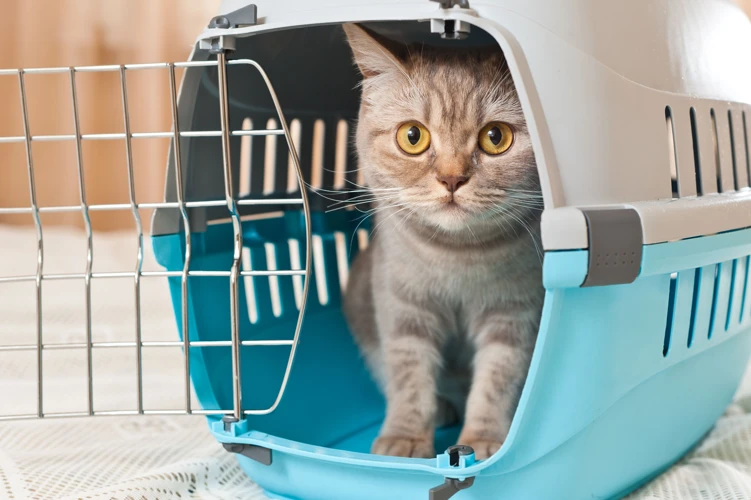
As a cat owner, preparing for a vet visit can be a daunting task. There are many things to consider and organize before the appointment to ensure that your American Shorthair cat receives the best possible care. From gathering medical records to transporting your cat safely, every detail matters. In this section, we will explore the essential steps you need to take to prepare for your cat’s vet visit and ensure that everything goes as smoothly as possible.
Bring Medical Records
When taking your American Shorthair cat to the vet, it is important to bring their medical records with you. This will allow the vet to have a complete understanding of your cat’s medical history and any previous health issues that they may have had.
Here are a few medical records to bring with you:
- Previous vet records: If you have taken your cat to the vet before, make sure to bring any previous vet records with you. This includes any medical treatments, vaccinations, and surgeries your cat might have undergone.
- Current medications: If your cat is currently on any medications, be sure to have a list of them with you. This will help the vet understand your cat’s current health status and possibly avoid any medication conflicts.
- Recent laboratory results: If your cat has had any recent laboratory tests done, such as bloodwork or urinalysis, bring those results with you. These tests can provide important information about your cat’s overall health and any underlying issues.
- Medical notes: If your cat has any specific medical issues or concerns, it may be helpful to bring notes from yourself or other caretakers. These notes can provide valuable insight into your cat’s daily behavior, such as eating habits, sleeping patterns, and overall demeanor.
By bringing these medical records with you, you can help ensure that your American Shorthair cat receives the best possible care during their vet check-up. It will also save time and prevent any unnecessary tests or procedures from being repeated. Don’t forget to keep a copy for your own records as well!
Transporting Your Cat
Transporting your cat
Transporting your American Shorthair cat to the vet can be a challenging experience for both you and your pet. Luckily, with a little preparation and some handy tips, you can help make the trip less stressful for all involved. Here are some best practices to follow when transporting your cat:
- Use a Cat Carrier: It is crucial to use a cat carrier to ensure your cat is safe and secure during transportation. A carrier made specifically for cats is typically the best choice. It is essential to take time to make sure your cat is comfortable with the carrier before the vet visit. Add some cozy bedding, toys, and treats to make it feel more like home.
- Place Carrier in a Familiar Location: Before it’s time to leave for the vet, place the carrier in a familiar location, such as your living room or bedroom, to help your cat feel more comfortable and relaxed. This will also allow your cat to get used to the surroundings and help reduce the chance of stress and anxiety during the trip.
- Secure the Carrier in the Car: Always secure the carrier in the car to prevent any accidents or injuries during transportation. It is best to put the carrier on the back seat or in the cargo area and secure it with a seat belt or other restraint system.
- Keep the Environment Calm: Cats are very sensitive to noise and motion, and a bumpy car ride can cause them to become stressed and anxious. Keep the environment calm by playing quiet music or avoiding excessive noise in the car. You can also try using a calming pheromone spray or diffuser to help keep your cat relaxed during the transport.
- Don’t Feed Your Cat Before Travel: It is best not to feed your cat before travel to avoid travel sickness. It may cause vomiting or diarrhea during transportation, which can add more stress to your cat. However, make sure to give your cat water to keep them hydrated during the journey.
- Stay Calm: Cats can sense their owner’s emotions, and if you’re nervous or anxious, it can transfer to your pet. So, it is essential to stay calm and reassuring during transportation. Talk to your cat in a soft, soothing voice, or try petting them through the carrier to help reduce tension and make the journey more comfortable for both you and your pet.
By following these tips, you can make transporting your American Shorthair cat to the vet a much smoother and stress-free experience, ensuring your pet gets the timely care and attention they need for optimal health.
Feeding Instructions
When preparing for your American Shorthair cat’s vet visit, it is important to pay close attention to their feeding instructions. The vet may need to conduct certain tests that require your cat to fast for a certain period of time prior to the appointment.
To ensure that your cat is comfortable and well-nourished during and after their visit, it is important to bring their food with you as well as any necessary feeding instructions. This information will help the vet understand your cat’s dietary needs and ensure that they receive proper care.
Feeding Guidelines and Restrictions
It is important to provide the vet with clear instructions regarding your cat’s feeding schedule, including the type of food and the recommended portion size. Some cats may have certain dietary restrictions, such as a limited-ingredient or prescription diet, that need to be followed closely to maintain their health.
Medications and Supplements
If your cat is taking any medications or supplements, it is important to bring these with you to the vet visit and let the vet know about them. Certain medications and supplements may interact with the tests or procedures your cat may undergo at the vet, and the vet may need to adjust their dosage or recommend alternate medications.
Water and Hydration
It is important to make sure your cat stays hydrated before and after their vet visit. Bring enough water for your cat and a water bowl to make sure they have access to fresh water throughout their visit.
Vet-Recommended Diets
If your American Shorthair cat has a specific health issue, your vet may recommend a particular diet to help manage or treat the condition. It is important to follow these recommendations closely to ensure your cat receives the proper nutrition and care to maintain their health.
To summarize, when preparing for your cat’s vet visit, it is important to bring their food, feeding instructions, and any necessary medication or supplements. This information will help the vet understand your cat’s dietary needs and ensure that they receive proper care. Providing your cat with enough water and following any vet-recommended diets will also help maintain their overall health and well-being.
Choosing a Vet for Your American Shorthair
When it comes to the health and well-being of your American Shorthair cat, choosing the right vet is crucial. Your vet is not only responsible for providing medical care for your furry friend, but they can also offer advice on nutrition, behavior, and preventative care. This means that you want to choose a vet who is not only experienced and knowledgeable but also someone your cat feels comfortable with. With so many options available, the task of choosing the right vet for your American Shorthair can feel overwhelming. Here are some tips to help you find the perfect vet for your feline companion.
Referrals from Other Cat Owners
One way to find a trusted vet for your American Shorthair cat is to ask for referrals from other cat owners. This can be a great way to get honest feedback and recommendations from people who have had first-hand experience with a vet’s services.
When asking for referrals, you can start by reaching out to friends, family members, and coworkers who have cats. It’s also worth checking online forums and social media groups dedicated to cats and cat owners, as these can be great places to find recommendations and reviews.
Once you have a few potential vets in mind, it’s important to do your own research on each one before making a decision. Consider creating an html table with the following categories to help you keep track of each vet’s credentials and experience:
| Vet’s Name | Credentials | Experience | Reviews |
|---|---|---|---|
| Vet 1 | List of credentials | List of relevant experience | List of positive/negative reviews |
| Vet 2 | List of credentials | List of relevant experience | List of positive/negative reviews |
| Vet 3 | List of credentials | List of relevant experience | List of positive/negative reviews |
In the “Credentials” column, you can list each vet’s education and any relevant certifications that they hold. In the “Experience” column, you can note any areas of expertise that they have, such as working with senior cats or managing chronic conditions. Finally, in the “Reviews” column, you can jot down any reviews or feedback that you come across during your research.
Ultimately, seeking out referrals from other cat owners can be a great way to find a vet who is trustworthy and will provide top-notch care for your feline friend. By doing your own research and gathering as much information as possible, you can feel confident that you’re making an informed decision when choosing a vet for your American Shorthair cat.
Credentials and Experience
When choosing a vet for your American Shorthair cat, it’s crucial to consider their credentials and experience. Look for vets who have completed rigorous educational programs and have received all necessary certifications and licenses to practice veterinary medicine in your area. Some important credentials to look for include a degree from an accredited veterinary school, certification from a veterinary specialty organization, and a valid license to practice veterinary medicine in your state.
Experience is also an essential factor to consider when choosing a vet. Look for a vet who has experience working with cats, particularly American Shorthairs. Ask your vet about their experience and expertise in handling common feline health issues, such as dental problems or urinary tract infections. You may also want to inquire about their experience in performing surgeries, such as spaying and neutering, in case your cat requires those procedures.
One way to assess a vet’s experience is to ask for recommendations from other cat owners. They can share their experiences with particular vets and provide insight into their strengths and weaknesses. Additionally, online reviews and ratings can provide helpful information about the quality of care provided by different vets.
It’s also important to consider the equipment and facilities available at the vet’s office. Look for a vet who has up-to-date equipment and is equipped to handle emergency situations. Consider the cleanliness and comfort of the facility as well, as this can have an impact on your cat’s comfort and wellbeing during visits.
Ultimately, finding the right vet for your American Shorthair cat requires careful consideration of their credentials, experience, and equipment. By taking the time to research your options and ask questions, you can find a vet who can provide the best possible care for your furry friend.
Compatibility and Comfort
When choosing a vet for your American Shorthair cat, it is important to consider both compatibility and comfort. Your cat’s comfort level during the vet visit can have a huge impact on the success of the check-up.
Compatibility: The first step is to make sure the vet is compatible with your cat’s personality. If your cat is shy or anxious, look for a vet who has experience working with these types of cats. Ask the vet how they handle anxious cats and what steps they take to calm them down. If your cat is particularly skittish, look for a vet who has experience working with feral cats or can offer sedation options.
Comfort: The second step is to look for a vet who prioritizes your cat’s comfort during the visit. This means looking for a vet who takes time to get to know your cat, is gentle during exams, and has a calming demeanor. You should also look for a vet who is willing to listen to your concerns and answer any questions you may have.
Below is a table summarizing the factors to consider when choosing a vet for your American Shorthair cat:
| Factor | Description |
|---|---|
| Compatibility | Look for a vet who has experience working with cats with similar personalities to yours, especially if your cat is shy or anxious. |
| Comfort | Choose a vet who prioritizes your cat’s comfort by being gentle during exams, taking time to get to know your cat, and being willing to listen to your concerns. |
By choosing a vet who is both compatible with your cat and focused on your cat’s comfort, you can help reduce any anxiety or stress your cat may experience during the vet visit, and ultimately make the visit a more successful experience for both you and your pet.
Conclusion
In conclusion, regular vet check-ups are incredibly important for maintaining the health and well-being of your American Shorthair cat. From physical exams to bloodwork and urinalysis, these appointments help detect health issues early, prevent future problems, and ensure vaccinations and parasite prevention are up-to-date.
It is recommended to take your cat to the vet at least once a year, but any changes in behavior or health should prompt a visit, especially for senior cats. It is crucial to prepare for your cat’s vet visit by bringing medical records, preparing transportation, and following feeding instructions.
Choosing the right vet for your American Shorthair also plays a significant role in your cat’s care. Look for referrals from other cat owners, check credentials and experience, and ensure compatibility and comfort for both you and your cat.
Overall, investing time and effort in regular vet check-ups for your American Shorthair cat can greatly improve their quality of life and prolong their lifespan. Don’t hesitate to schedule an appointment today and give your beloved feline the optimal care they deserve.
Frequently Asked Questions
1. How often should I take my American Shorthair cat to the vet?
It is recommended to take your American Shorthair cat to the vet at least once a year for a check-up.
2. What should I expect during my cat’s physical examination?
The vet will examine your cat’s body, including their eyes, ears, teeth, and fur. They will also check your cat’s weight, temperature, and heart and lung function.
3. Should I bring anything to the vet visit?
It is a good idea to bring your cat’s medical records, including any past vaccinations or treatments. You may also want to bring a list of questions or concerns to discuss with the vet.
4. How can regular vet check-ups benefit my American Shorthair cat?
Regular vet check-ups can help detect potential health issues early on, prevent future health problems, and maintain vaccinations and parasite prevention.
5. When should I take my American Shorthair cat to the vet outside of their yearly check-up?
You should take your cat to the vet if you notice any changes in their behavior or health, such as decreased appetite, vomiting, diarrhea, or lethargy.
6. Do senior American Shorthair cats need more frequent vet visits?
Yes, senior cats may require more frequent vet visits, typically twice a year, as they are more prone to health issues in their later years.
7. How can I transport my American Shorthair cat to the vet safely?
You can transport your cat safely in a secure cat carrier, lined with comfortable bedding, and placed in the backseat of your car. Avoid feeding your cat before the vet visit to prevent carsickness.
8. Should I choose a veterinarian who specializes in cats?
While it is not necessary to choose a vet who specializes in cats, it can be helpful to choose a vet who has experience and a good reputation in treating cats.
9. What should I look for in a vet’s credentials?
Look for a vet who is licensed by your state’s veterinary board and has continuing education in the latest treatments and technologies.
10. How can I make my American Shorthair cat more comfortable during their vet visit?
You can make your cat more comfortable by bringing their favorite toy or blanket, allowing them to explore the exam room before their appointment, and providing praise and treats during and after the exam.

